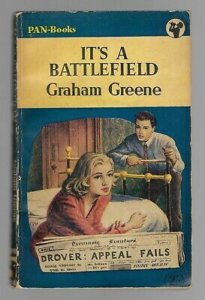 Famously, Graham Greene was involved in two, potentially awkward legal cases in the 1930s. Firstly, he was accused by J.B. Priestley of lampooning the author in his 1932 novel Stamboul Train. His publishers demanded that he changed the relevant section in his novel. Later in the same decade, his film review of ‘Wee Willie Winkie’ in Night and Day greatly offended Twentieth Century Fox and the resulting High Court case brought the short-lived cultural magazine to its knees.
Famously, Graham Greene was involved in two, potentially awkward legal cases in the 1930s. Firstly, he was accused by J.B. Priestley of lampooning the author in his 1932 novel Stamboul Train. His publishers demanded that he changed the relevant section in his novel. Later in the same decade, his film review of ‘Wee Willie Winkie’ in Night and Day greatly offended Twentieth Century Fox and the resulting High Court case brought the short-lived cultural magazine to its knees.
However ‘the boot was on the other foot’ in 1968 when the French company responsible for Éditions du Seuil in Paris published a breakthrough novel by a young Malian writer called Yambo Ouologuem. Le Devoir de violence (Bound to Violence) won one of France’s most prestigious literary honours, the Prix Renaudot. Ouologuem’s novel received critical acclaim for its baroque and bloody depiction of an imaginary West African empire spanning the thirteenth to twentieth centuries. Then it became embroiled in a controversy that has spanned multiple continents and several decades.
Initially hailed as an African Marcel Proust, Ouologuem was soon denounced by critics as a plagiarist and charged with having stolen passages from writers including André Schwarz-Bart and Guy de Maupassant. Graham Greene filed a lawsuit against Ouologuem and his publishers at Seuil, claiming that lengthy passages had been directly plagiarized from Greene’s novel It’s a Battlefield. Éditions du Seuil stopped production and removed the book from shelves and the novel was subsequently banned in France.